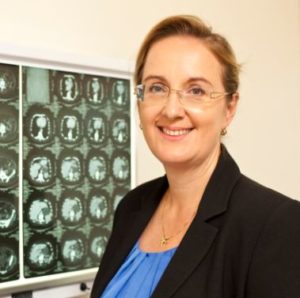
While a diagnosis of cancer naturally tends to concentrate the minds of patients and doctors alike, it shouldn’t be the sole focus of treatment, says a new report from the Flinders Centre for Innovation in Cancer (FCIC).
Where cancer becomes the exclusive medical focus, it can be at the expense of other crucial aspects of a patient’s health, according to the group of senior medical clinicians and researchers who produced the report, Sharpening the Focus: Chronic Conditions in Cancer.
The FCIC Think Tank brought together practitioners and researchers from around Australia and overseas to begin exploring the impact of chronic conditions on cancer survival, quality of life and the effectiveness and costs of cancer care in Australia.
In the newly published report, the FCIC Think Tank calls for the urgent adoption of strategies that also address chronic conditions, which in many patients co-exist with cancer and may even pose an equal or bigger threat to life expectancy.
These conditions include cardiovascular illness, obesity and metabolic illness, mental health problems and musculoskeletal conditions. In the US it is estimated at least 90 per cent of cancer patients 65 years or over have one such other chronic condition, with around a quarter having five or more.
Flinders University medical oncologist Professor Bogda Koczwara says thanks to an unwavering focus, Australia has achieved an outstanding record of excellence in the delivery of cancer services and outcomes.
But it also means, she says, there is a tendency to regard and treat cancer in isolation. And the majority of cancer patients, especially the elderly, have co-existing chronic health conditions, which along with conflicting medications, can adversely affect the efficacy of their anti-cancer care, or restrict what is available to them.
Chronic health conditions can also develop as a result of cancer or its treatment.
“We have, in a way, competing objectives, and we need to learn how to balance them so that we have the best outcome for the patient,” Professor Koczwara said.
The report recommends that chronic conditions which co-exist with cancer receive higher priority and be addressed at the same time as treatment for cancer is being assessed.
Professor Koczwara says the change in attitude needs to begin with fundamentals such as routine data collection, so that the incidence of co-existing chronic conditions can be accurately gauged and their impact assessed.
“At the same time, we need to be aware that there is a wealth of knowledge about how to manage chronic conditions, but not a lot of it is applied or adopted within the cancer setting,” she said.
The report, however, does not advocate multiplying the number of specialists a patient sees: “What we have to ask, is how we integrate and streamline care in a way that is more user-friendly, less time consuming and which shares information,” Professor Koczwara says.
“The cultural shift starts with recognition that most people have more than one health issue.”
FCIC is a joint venture between Flinders University, Flinders Medical Centre (FMC) and the FMC Foundation.

